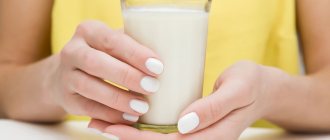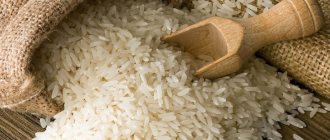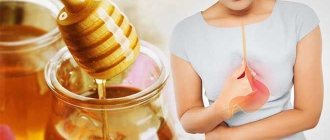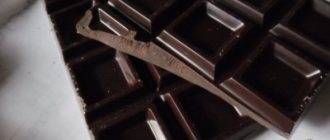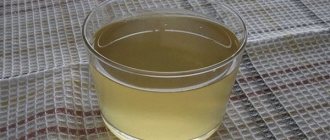General information about cottage cheese
Cottage cheese is valued for its high taste and the benefits it brings to the body.
Nutritionists recommend including it in the diet of athletes, children, pregnant women and anyone who suffers from digestive disorders.
Compound
Product contains:
- vitamins of groups A, B, C, E;
- lactose;
- proteins;
- lactic acid bacteria;
- macro- and microelements.
Properties
Cottage cheese has a beneficial effect on the cardiovascular and nervous systems. It is recommended to be used for pathologies of the liver and kidneys. The product helps restore the gastric mucosa. Regular consumption of cottage cheese improves metabolism and relieves constipation.
Cottage cheese restores the gastric mucosa.
The protein contained in the product is absorbed by the body more easily than a similar component obtained from meat.
Cottage cheese is prescribed during illness to reduce the load on the body and at the same time give it the opportunity to receive the necessary vitamins.
Benefits for the body
Calcium is considered the most valuable component in fermented milk products. If the microelement enters the body in sufficient quantities, a person is less likely to experience caries. In old age, calcium becomes a protection against osteoporosis.
Causes of heartburn from cottage cheese
The cause of heartburn is not always cottage cheese. If attacks recur frequently and when consuming other foods, you should consult a doctor.
Fat
Fatty foods are more difficult to digest. The body is forced to increase the production of hydrochloric acid. Fatty foods disrupt the functioning of the duodenum, gallbladder and stomach.
When you eat fatty foods, your body produces hydrochloric acid.
Supplements
Sweeteners, stabilizers, flavors and other food additives in most cases are of artificial origin. When such components enter, the body reacts with heartburn.
Sugar
Sugar relaxes the sphincter. This is a muscle located at the bottom of the esophagus, into which undigested food from the stomach enters.
Poor quality product
If the expiration date has expired or the production technology has been violated, the cottage cheese causes poisoning. In addition to nausea, vomiting and diarrhea, you may experience heartburn. An expired product is identified by a sour taste and unpleasant odor.
Pregnancy
During pregnancy, the sphincter between the esophagus and stomach relaxes. This occurs due to changes in hormonal levels. The cause of the burning sensation may be the pressure that the growing fetus puts on the stomach. Any food can cause acid surge.
Pregnant women experience heartburn due to hormonal changes.
Reasons for appearance
It is worth mentioning that the occurrence of heartburn from the product is a rare occurrence. More often, what happens is associated with a disruption in the functioning of the internal organs of the digestive system or with intolerance to the dish itself. The reasons are also hidden in the way the product is created: at home or in a factory. Perhaps the extra cast is to blame.
Fat
If a person has established dysfunction of the gallbladder, duodenum, or stomach, then the high fat content of cottage cheese leads to increased symptoms and the appearance of burning pain in the chest. A similar reaction occurs if there is intolerance to the product, a disease of the upper digestive tract, or the age of the patient. Older people are more likely to experience heartburn.
Supplements
In factory-made fermented milk products, thickeners, sweeteners, and stabilizers are often found. This does not improve the quality of the product and has a bad effect on the condition of the human body, which is why heartburn occurs after cottage cheese.
Sugar
The cause of a burning sensation in the chest is the fat present in the product as a natural component, and in addition an artificial filler in the form of sugar. This sweet product is recognized as a light carbohydrate. The entry of large amounts of sweets into the esophagus reduces the tone of the lower muscle of the organ. The sphincter contracts weakly and allows the contents of the stomach to flow back into the esophageal canal. The backflow of food and gastric juice provokes heartburn.
There are a lot of people who want to eat sweet cottage cheese with sour cream - these are potential patients of a gastroenterologist.
Cottage cheese quality
Great importance is attached to the freshness of the consumed product. Eating missing or inappropriate food leads to poisoning of the body. Intoxication leads to nausea, vomiting, and initially heartburn.
Age makes adjustments to the process of digesting a number of foods. Thus, in older people, the production of enzymatic elements is reduced - food is not completely broken down, fermented milk products are not fully digested. This leads to stagnation of food in the digestive tract, souring. At the same time, a signal is sent to the stomach to secrete more juice, which leads to the release of the organ's contents into the esophagus. Heartburn and other unpleasant sensations occur.
Heartburn during pregnancy
Pregnancy is a delicate period in the life of any woman. During gestation, special attention is paid to the quality of nutrition and the saturation of food with useful elements. Naturally, the issue with cottage cheese becomes relevant. Are fermented milk products good for a pregnant woman? Will heartburn occur?
For the expectant mother and her child, the product is an indispensable source of calcium, and it is advisable to consume twice as much of the sour milk product. The only caveat: you need to monitor the fat content. The fat content should be minimal; it is better to use the low-fat variety.
Consuming fatty foods during pregnancy will lead to sudden weight gain. You should also give up baked goods.
It is advisable to buy fermented milk products in discreet places, do not take risks. Cottage cheese cannot be stored for long periods of time.
If suspicious signs or discomfort appear, you should contact your doctor or nutritionist for advice.
There is no need to give up your favorite and healthy fermented milk product if heartburn occurs. The situation can be corrected without resorting to medications, and at the same time continue to receive the benefits concentrated in the home product.
Drug therapy
A burning sensation in the esophagus not only causes discomfort.
Constant contact with acid leads to the development of cancer. For frequent attacks of heartburn, the following is prescribed:
- Prokinetics (Metoclopromide). Drugs in this group improve motility of the gastrointestinal tract.
- Antacids (Almagel). These remedies help fight heartburn by reducing stomach acidity. Almagel and similar medications quickly relieve the unpleasant symptom.
- Proton pump blockers (Omeprazole). With the help of these drugs you can control the production of gastric secretions.
The choice of medications and dosage setting should be entrusted to the attending physician.
Drug treatment
If, after reducing the portion and following other recommendations, heartburn continues to bother you, there is a reason to visit a gastroenterologist. The doctor will conduct an examination using the following methods:
- Ultrasound. The examination concerns the abdominal cavity. On the monitor screen, the gastroenterologist will detect areas of possible inflammation or the presence of other diseases associated with mechanical damage to internal organs.
- FEGDS. Endoscopic observation, which allows you to see first-hand abnormalities in the esophagus or stomach.
- Analysis of urine. Determines dysfunction of internal organs.
- Blood analysis. The presence of an inflammatory process in the body is determined.
Treatment of any heartburn involves an integrated approach: diet, diet, medications.
Medicines
Prescribed medications to help get rid of an unpleasant burning sensation in the chest:
- Medicines that affect the amount of hydrochloric acid produced. For example, Omeprazole.
- Agents that can neutralize hydrochloric acid and coat the mucous membrane of the walls of the stomach and intestinal tract. They are designed to quickly cope with heartburn and other symptoms: nausea, pain. Not used as an independent treatment, solely as an aid to the main prescriptions against heartburn and other symptoms. Almagel, Gaviscon, Phosphalugel.
- Prokinetics. Medications.
- The action of the drugs is aimed at the gradual movement of the food bolus through the digestive tract and its thorough digestion. Cerucal, Metoclopramide, Reglan.
Rules of use
How to use cottage cheese correctly to avoid burning:
- Do not eat the product on an empty stomach. At the same time, after a heavy meal, you should also refuse it.
- Eat a fermented milk product in the first half of the day, for example for breakfast after a small portion of oatmeal.
- Eat food in small quantities. It is enough to eat 3-4 tbsp. l. cottage cheese in one go.
- Use a heat-treated product. In such food, most harmful bacteria die and substances hazardous to health are destroyed. You can make cheesecakes or cottage cheese casserole.
- Do not take a horizontal position immediately after eating. You should also not bend over to avoid squeezing your stomach.
- Eat 2-3 hours before bedtime.
Cottage cheese should not be eaten on an empty stomach.
Milk will help in the fight against unpleasant symptoms. It neutralizes stomach acid, reducing the likelihood of heartburn.
You need to drink ½ glass of milk half an hour before meals. You should not abuse the drink. If the acidity level is too low, the food will not be able to be digested.
How are diet and heartburn related?
What are the causes of heartburn?
Diet-related heartburn usually occurs with an irregular, inadequate and unbalanced diet, which causes dysfunction of the esophagus, stomach and intestines. As a result of the damaging effects of gastric enzymes, hydrochloric acid (acid reflux) and/or pancreatic juice, bile (alkaline reflux) on the mucous membrane of the esophagus and the lower esophageal sphincter, we feel an unpleasant sensation in the chest, called heartburn.
What foods cause heartburn?
Heartburn most often bothers those people who
- often consume citrus fruits and juices and caffeine-containing drinks (coffee, black tea, Coca-Cola);
- love tomato sauces, chocolate, products containing mint, spices;
- eat fatty foods with a predominance of carbohydrates, especially refined ones (pasta, sausages, pies, cookies, buns, sweets, jam);
- abuse alcohol and carbonated drinks. In addition, product compatibility is also of great importance.
How to get rid of heartburn without medications?
Treatment of patients with heartburn should be focused on the correction of eating behavior. Dietary recommendations should be strictly individual, taking into account data on the tolerance of certain products.
If you have a family history of allergic diseases, in order to select an “individual diet,” we recommend determining the presence of an allergy to cow’s milk protein and conducting a genetic study for lactose and gluten tolerance.
Diet principles for heartburn
- Eat small amounts of food 3-4 times a day, avoid snacking. The last meal should be at least 2 hours before bedtime.
- Increase protein intake, with plant proteins making up half of the protein portion of the diet, for example, soy products. Protein increases the tone of the lower esophageal sphincter.
- Reduce fat consumption (cream, butter, fatty fish, pork, goose, duck, lamb, cakes). Fatty foods disrupt the motor function of the stomach, this leads to a significant increase in the secretion of hydrochloric acid and, as a result, heartburn; in addition, fats reduce the tone of the lower esophageal sphincter.
- Avoid the consumption of spices, very spicy, hot or cold foods and carbonated drinks. Very hot food injures the mucous membrane of the esophagus and stomach, while cold food, on the contrary, lingers in the stomach for a long time, thus provoking reflux and heartburn.
- Do not consume foods that irritate the mucous membrane of the esophagus and stomach - sour fruit juices, citrus juices, tomatoes, brewed black coffee, strong tea, dark chocolate, alcohol, fresh mint, onions and green onions, red and black pepper, garlic. These products have a direct damaging effect on the esophagus and also reduce the pressure of the lower esophageal sphincter.
- Avoid products that increase gas formation.
Preventive measures: how to avoid burning
To prevent heartburn, it is recommended:
- Make purchases only in the store. At the market, cottage cheese is sold without packaging. It is difficult to determine the expiration date and freshness of such a product. The cottage cheese may have been prepared in unsanitary conditions.
- Avoid wearing clothes that are tight at the waist, such as corsets.
- Choose a product with a low fat content, without flavor enhancers. A small amount of raisins or dried apricots will not do any harm. However, sugar and flavorings are often added to curd masses. You can mix the product with fruits or berries at home. You should not buy completely low-fat cottage cheese.
- Purchase fermented milk products with a short shelf life. Perishable goods, after opening the package, remain fresh for 2-3 days when stored in the refrigerator. If the indicated expiration date exceeds a week, preservatives were used during production. They can provoke a burning sensation.
- Avoid eating cottage cheese during periods of exacerbation of gastrointestinal diseases.
- Review your daily diet. It is necessary to exclude foods that provoke the reflux of acid from the stomach: fatty meat, spices, alcoholic drinks.
- Stop smoking. Tobacco smoke irritates the mucous membrane of the digestive organs, which leads to problems with the gastrointestinal tract.
- To live an active lifestyle. Digestive problems are more common in people who have sedentary jobs and prefer passive hobbies. However, you should not exercise immediately after eating.
Information sources:
V. V. Tikhonovets, A. N. Andreeva... - Real clinical practice of medical prescriptions for heartburn in pregnant women - source V. A. Ostapenko, S. S. Bunova, A. V. Polyakov... - Features of enteral nutrition in gastroesophageal reflux disease - source M. O. Krlykova, D. A. Mironov, N. V. Sviyazova... - Proper nutrition as a healthy lifestyle - source A. Tolstykh - Dietary nutrition for diseases of the gastrointestinal tract - source N. N. Silivonchik - Heartburn in pregnant women - source KL Oliver, GJ Davies - Heartburn: influence of diet and lifestyle - source K. Oliver, G. Davies, P. Dettmar - Diet and lifestyle as trigger factors for the onset of heartburn - source R. Berlin, TN Gates, T. Simon - Method for preventing heartburn - source
